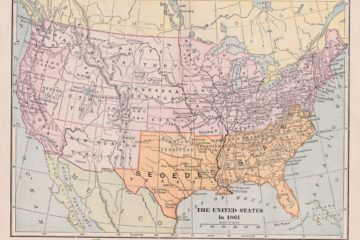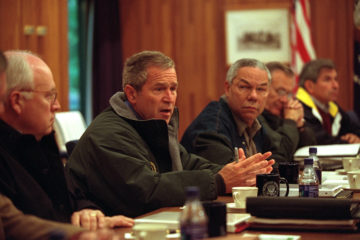
Comparing the 1860 and 2020 Elections: Is the USA Heading for Another Civil War?
All summer, as protests raged over the United States, fears grew that an increasingly polarised United States was heading for another civil war. There was great worry over violence erupting across the land, and a distinct sense that there were at least two rival and distinct Americas in the country: Red America and Blue America. Political movements such as the Lincoln Project and the Wide Awake Boys explicitly made comparisons between the present time and the Civil War-era. Almost two thirds of Americans, in May 2020, believed that the country was close to civil war. The 2020 presidential election might therefore have the same effect as that of 1860 election: then, the election of Abraham Lincoln as President persuaded the …
How Politicizing the Postal Service Got America in Trouble Before
As the coronavirus continues to spread across the United States, questions concerning American voters’ ability to cast their ballots safely in person on 3 November became increasingly urgent this election season. Despite his own record of voting by mail, President Trump has frequently attacked mail-in voting, making unfounded claims about the potential for fraud and playing favorites to suggest its validity only in states with Republican governors like Florida. Depicting vote by mail as a Democratic tactic to steal his re-election, Trump’s campaign even filed an ultimately dismissed suit in battleground Nevada to stop the state from sending absentee ballots out to all active voters. However, mail-in voting has historically not been such a partisan issue. Even now, Fox News …
October Surprise: How Foreign Policy Can Shape US Presidential Elections
The president’s recent diagnosis with Covid-19 sent the US presidential election race into a tailspin. As Donald Trump and Joe Biden jockey to regain control of the media narrative at a crucial phase of the campaign, speculation about a possible “October surprise” is widespread. Today, the term refers to any news story that breaks late in an election cycle and has the potential to affect the outcome of the election. Yet its origins are firmly rooted in foreign policy. In particular, the phrase describes a sitting president’s alleged propensity to manipulate events to boost their electoral prospects. The president’s recent tweet calling for all remaining US forces in Afghanistan to return home by Christmas has fueled suspicions that Trump is playing politics …

A campaign for the poor? The politics of Medicaid and the 2020 election
Since the 2018 midterm election, Democratic socialists have been leading voices in the Democratic Party, a trend that was all the more evidenced by Bernie Sanders’ resounding primary victories in states like Nevada, Colorado, and among others California. If anything, these voices have successfully brought poverty and social justice to the forefront of the Party’s politics as issues like child poverty, wages, housing and education dominated the primary debates. This was especially the case in Iowa on 14 January as protests by the Poor People’s Campaign took place outside the debate venue. The organisation represents the interests of the poor with a name referencing a series of demonstrations for economic justice organized in 1968 under the leadership of Martin Luther …
Can #BernieOrBust Be Justified? On the Ethics of Voting
The #BernieOrBust slogan was widely adopted in the 2016 Presidential Elections by ardent supporters of Senator Bernie Sanders. These devotees insisted that they would not vote for any candidate (namely Hillary Clinton, the eventual Democratic Party nominee) in the eventual general election showdown with Trump. Four years later, the slogan has resurfaced as a credible threat directed toward what many perceive to be a recalcitrant Democratic Party establishment. In what follows, I do not claim that “#BernieOrBusters” are morally justified (all things considered), but merely offer a possible defence for why some #BernieOrBust advocates are behaving in a rationally justified manner. I grant two premises amenable to most critics of #BernieOrBusters: first, Trump is a highly problematic candidate in his actions and dispositions; second, whilst not …

War and the Ballot Box: What the Iraq War Tells Us About Military Escalation in an Election Year
U.S. presidents have powerful political incentives to think twice before escalating a conflict in the lead-up to an election. Recent events in the Gulf suggest that President Trump is no exception when it comes to avoiding the commitment of “boots on the ground” in an election year. As both commander-in-chief and holder of the highest elected office, presidents must carefully weigh the political consequences of any decision regarding military strategy. Since voters tend to bear the brunt of the human and financial costs of war, decisions to send additional U.S. forces into combat are often fraught with risk of consequent reprisal at the ballot box. In my recent article in International Security, I explore how these electoral pressures affected decision-making during the Iraq War. …









